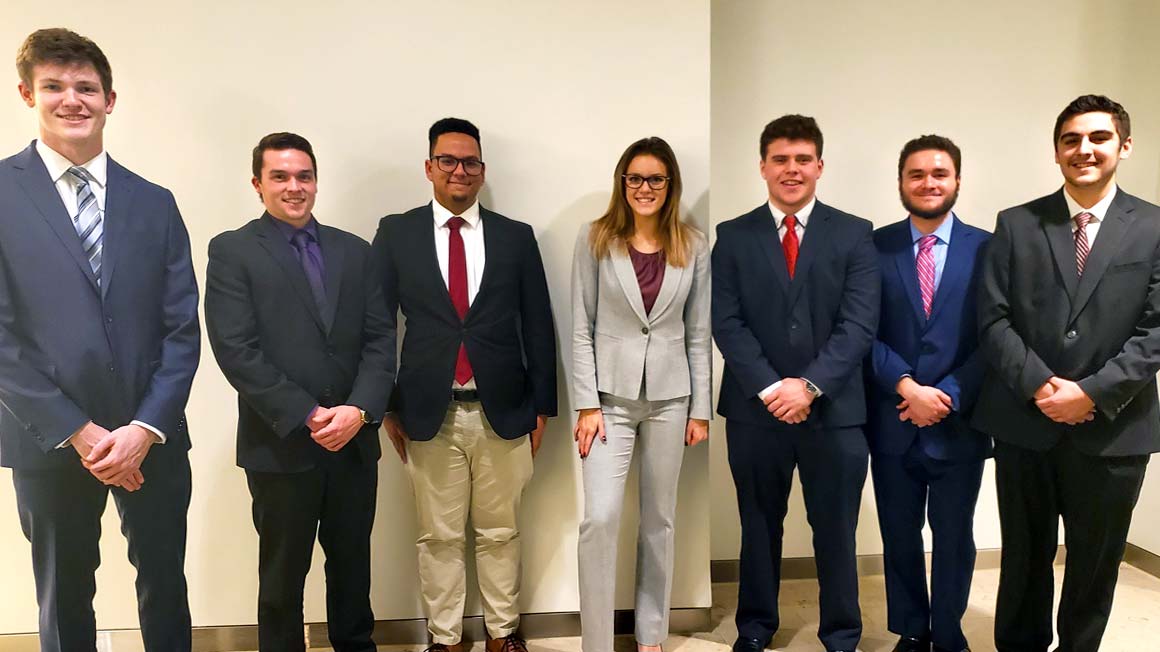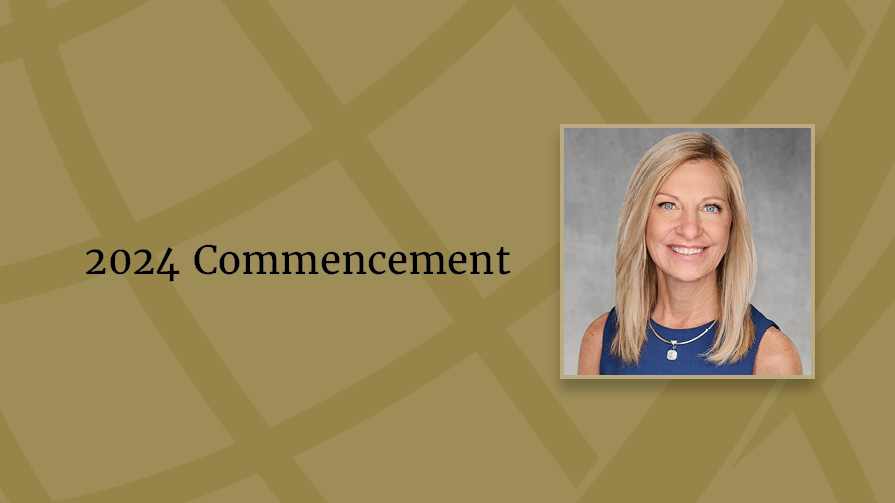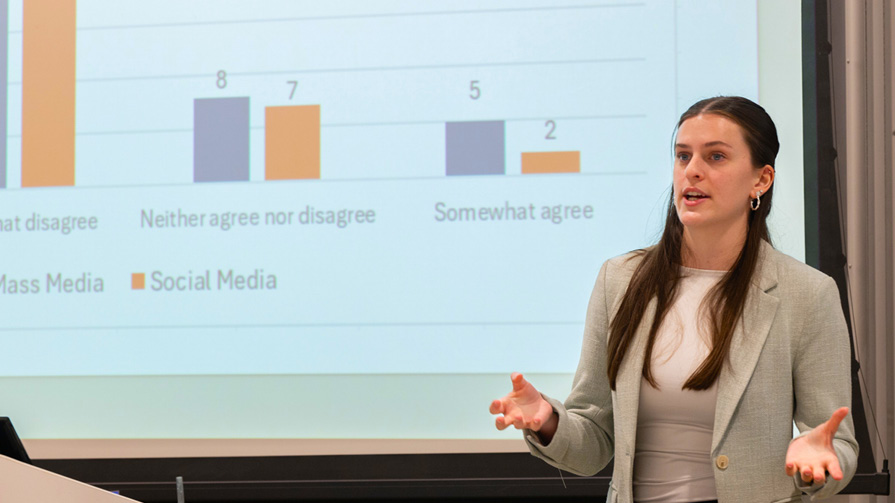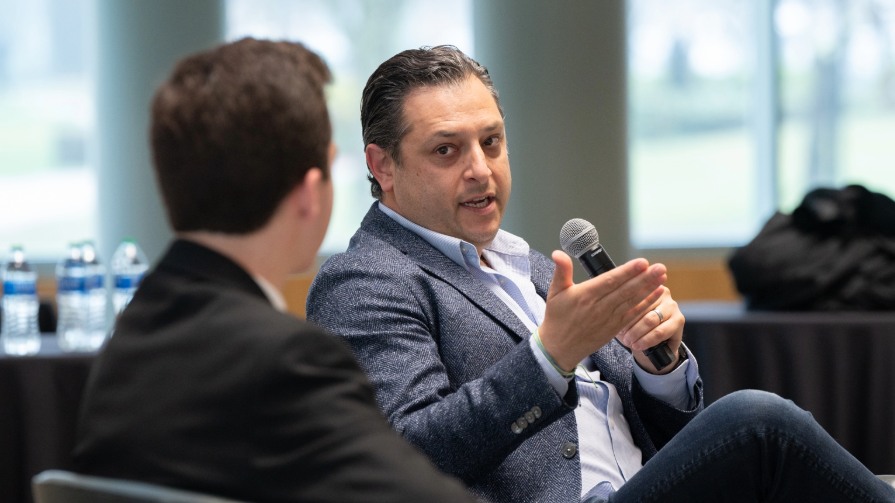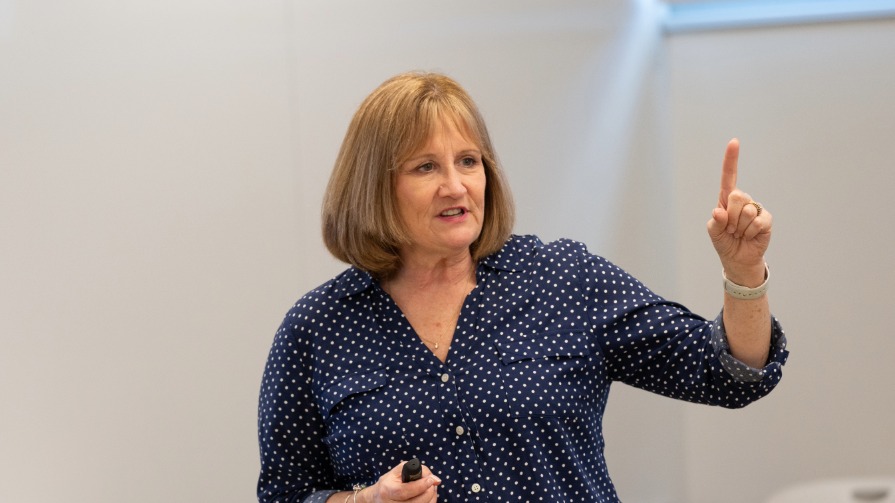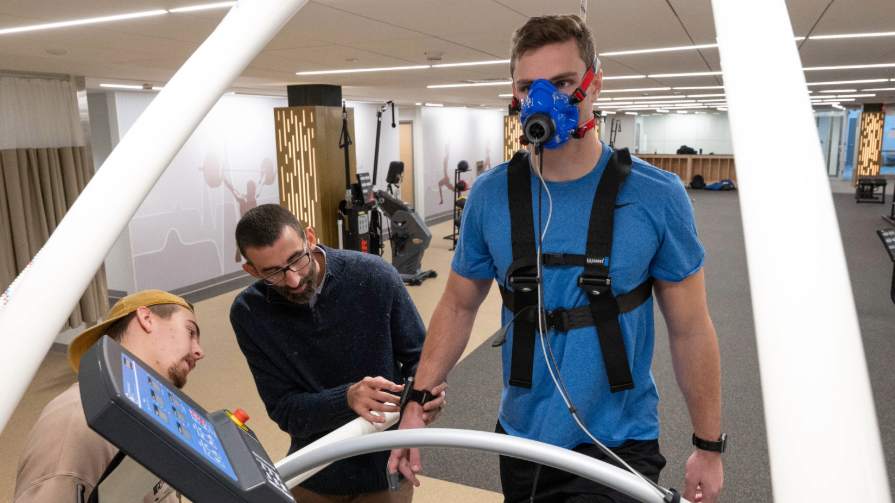What she learned in ISA 201 with Associate Professor of Information Systems and Analytics Professor Kenneth Sousa, Ph.D., will last Accounting major Courtney Vogel ’22 a lifetime.
In the course, Introduction to Information Technology and Analytics, students learn data analysis concepts and IT solutions, then apply those skills to a real-world business problem for a client, Providence Community Health Centers. Student teams compete to present the winning solution to real executives.
“I’m thankful that I decided to push myself. I learned so much, and to see how all the hard work paid off and what our team achieved was unreal.”
Nearly 50 student teams competed; Vogel was a member of one of the two teams that were declared finalists. The executive judges said her team provided the strongest analysis and most realistic solution.
Academic achievement that brings confidence
Vogel says she’s glad she signed up for the course even though she knew it would be challenging. “I’m thankful that I decided to push myself. I learned so much, and to see how all the hard work paid off and what our team achieved was unreal.”
Professor Sousa, who coached both finalist teams, says that’s by design. “For the students who take advantage of experiential learning, they are completing the course not only with knowledge, but they're moving forward with a larger sense of self-confidence and self-assuredness.”
The competition started with 8,000 rows of client data in Excel. Students mined the data for insights that could improve the quality of care while lowering the company’s costs. “We didn’t know much about healthcare, so we started with a lot of research,” says Vogel.
“It turns out, language barriers are a huge problem in healthcare, often leading to misdiagnosis.”
That, too, is by design. "It's important for students to be given assignments in an area that they may not have previous knowledge. They'll be required to learn more independently in their careers," says Sousa.
After working tirelessly with the Excel data, Vogel and her teammates noticed the presence of language barrier issues. “It turns out, language barriers are a huge problem in healthcare, often leading to misdiagnosis,” she says.
To address the issue, the team recommended IT solutions learned in the course, then adapted their proposal using feedback from Sousa and other guest executives he brought in. “I view teaching students as a partnership—and this team really took on the challenge and played that role very well,” says Sousa.
In-demand skills for the future
Vogel credits the team's success to Sousa’s in-depth Excel labs, where she learned how to manage, manipulate, and analyze data. His lectures "made me realize the utility and the demand for Excel – it’s an amazing tool.”
And, adds Vogel, “He made me realize if you really want something, you have to work hard for it.”
The knowledge Vogel takes from the course will be useful during her accounting internship at the “big 4” firm KPMG in summer 2021, and beyond. “I learned so much in the course, not just Excel and data analysis skills but also how to push myself," she says. "It taught me skills that I know I’ll need to use for the rest of my life.”
